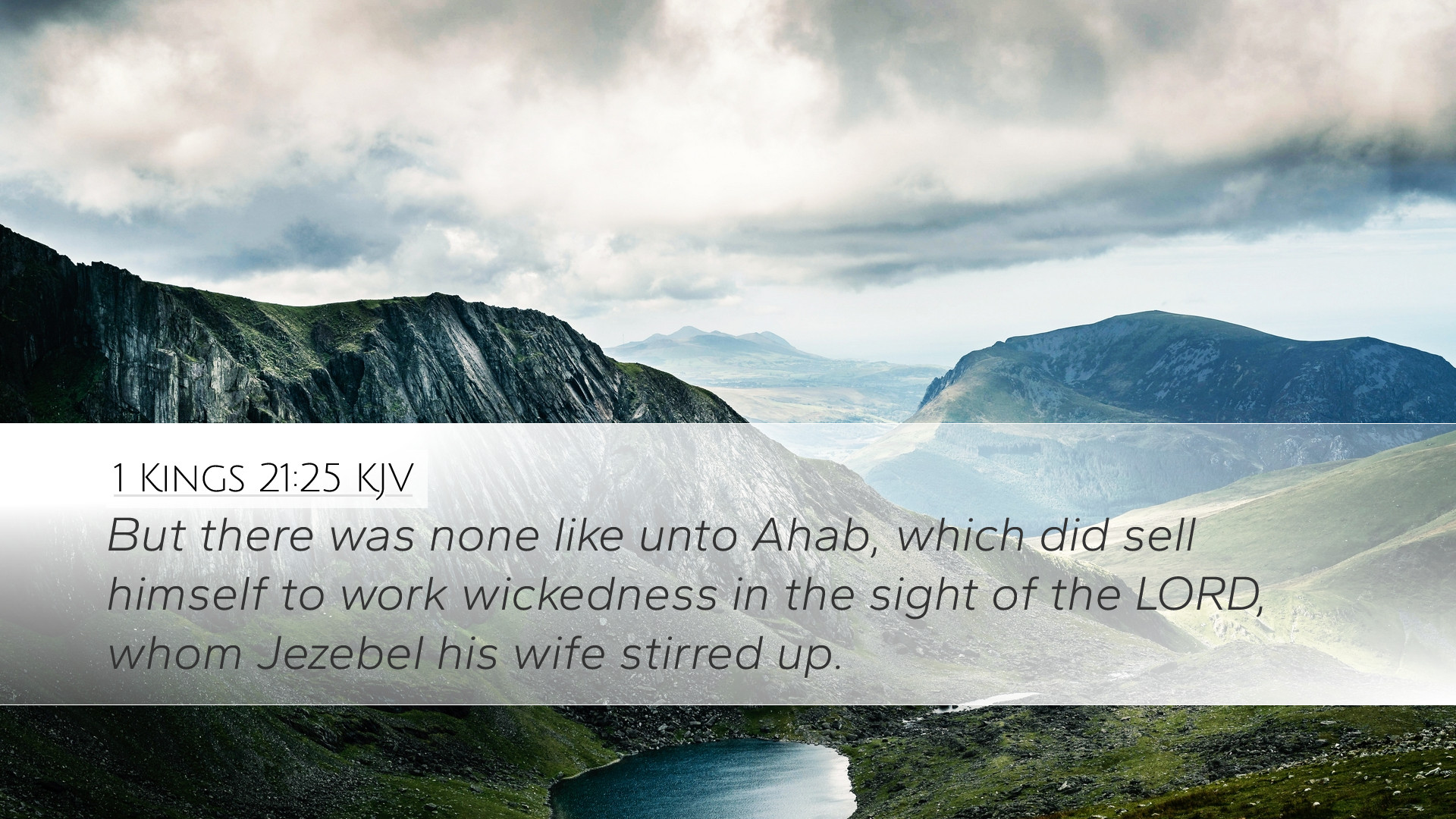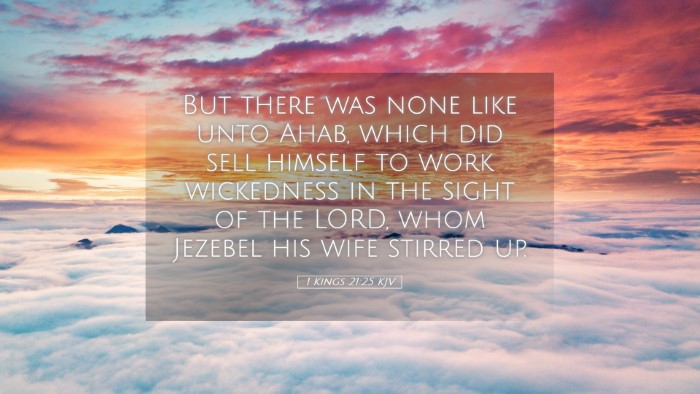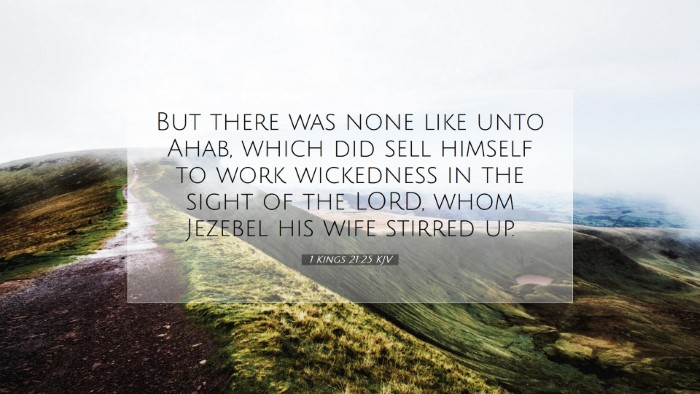Commentary on 1 Kings 21:25
1 Kings 21:25 states, “But there was none like unto Ahab, which did sell himself to work wickedness in the sight of the Lord, whom Jezebel his wife stirred up.” This verse serves as a powerful indictment of King Ahab's reign and exhibits the profound moral decay that he represented within the northern kingdom of Israel.
Contextual Overview
Ahab, the seventh king of Israel, is remembered for his alliance with Jezebel and his significant deviation from the worship of Yahweh. The background of this verse is critical; Ahab's desire for Naboth's vineyard led him down a path of spiritual ruin. This desire, exacerbated by Jezebel's influence, illustrates the theme of idolatry prevalent in Israel during Ahab’s reign.
The Nature of Ahab's Wickedness
Ahab’s actions, as described in 1 Kings 21, highlight a man who not only allows but actively enables wickedness. This verse categorically identifies Ahab as having “sold himself to work wickedness,” suggesting a deep-seated commitment to evil actions over the allegiance to God.
-
Matthew Henry's Commentary:
Henry emphasizes that Ahab's desire for Naboth’s vineyard reveals his covetousness and lack of moral rectitude. His willingness to resort to murder to satisfy his greed illustrates a spiritual blindness and an unrestrained appetite for sin. Henry notes that Jezebel’s manipulation played a significant role, but Ahab’s own desires led him down this dark path.
-
Albert Barnes' Notes on the Bible:
Barnes elaborates on the phrase “none like unto Ahab,” indicating that Ahab’s failings were unprecedented in the history of Israel’s kings. He points to Ahab’s pact with the corrupt and his allowance of idolatry, which was a significant factor in his moral decline. Barnes argues that Jezebel's influence showcases the dangers of unchecked power in partnership with wickedness.
-
Adam Clarke's Commentary:
Clarke provides insight into the relationship dynamics between Ahab and Jezebel, suggesting that Ahab was weak-willed and manipulable. He depicts Ahab’s actions as emblematic of a king who allowed himself to be governed by his sinful desires, illustrating the corrupting nature of power and greed.
The Role of Jezebel
Jezebel is depicted not just as a passive influencer but as an active agent stirring Ahab towards sin. Her actions and policies led Israel further into idolatry and away from Yahweh, thus cementing Ahab’s infamous reputation for immorality. The text encourages readers to be wary of influences that lead them away from godly principles.
Theological Implications
This verse opens discussions on themes of idolatry, greed, and the corrupting influence of bad company. Theologically, it poses questions regarding the nature of sin and the extent of God’s judgment on nations and individuals who forsake righteousness. Ahab's story serves as a warning to leaders and believers alike about the perils of moral compromise.
Application for Today
Modern readers are encouraged to consider the nature of their own desires and the influences at play in their lives. Like Ahab, contemporary individuals may find themselves compromising their values under various pressures, be it from society, peers, or even personal ambition. This passage challenges believers to stand firm in their commitment to God's standards rather than succumbing to the allure of power or possessions.
Conclusion
1 Kings 21:25 presents a somber reflection on the nature of sin and its consequences through the story of King Ahab. The moral lessons gleaned from Ahab's life are timeless, urging current and future generations to remain vigilant against the encroachment of wickedness, ensuring that their lives reflect a commitment to righteousness in the sight of the Lord.


